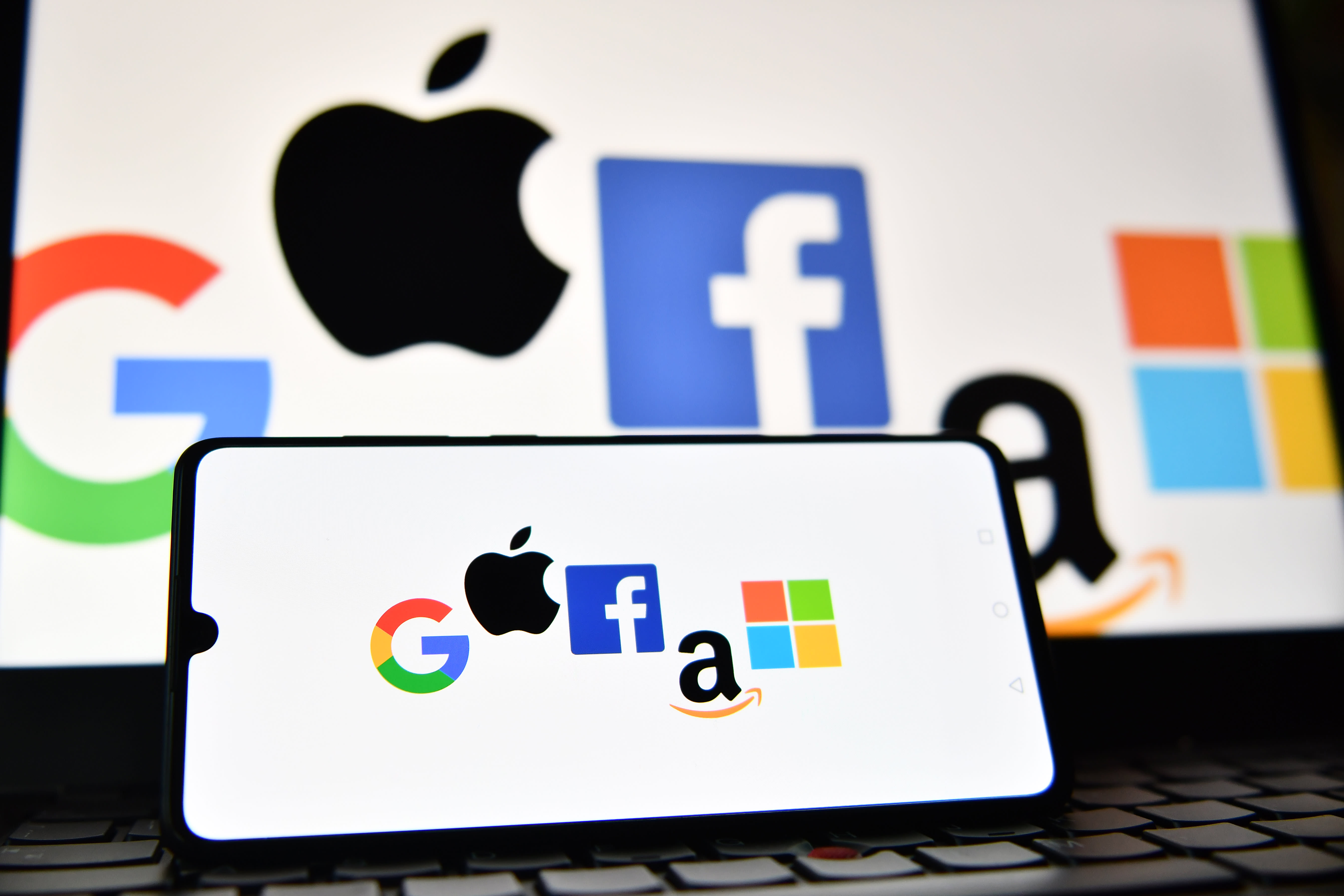Big Tech dodged impact of Apple’s privacy changes in ‘red hot’ digital ad market… for now

The logos of Google, Apple, Facebook, Amazon and Microsoft displayed on a mobile phone and a laptop screen.
Justin Tallis | AFP via Getty Images
All eyes were on the potential negative impact of Apple‘s recent privacy changes on tech stocks over the past week, but earnings from companies like Facebook and Snap showed they were able to manage any fallout amid a surge in digital ad spend.
Some tech companies warned Apple’s changes to ad privacy will sting more in the third quarter, but analysts think any impact could be more minimal than originally expected, especially as companies build out new tools to measure and target ads without the use of all the data they’ve historically enjoyed.
But as companies move into the second half of the year, they’ll have to face a tougher comparative period along with any harsher impact from Apple’s privacy changes, which give users more transparency and control over apps that want to track them for advertising.
J.P. Morgan analysts pointed out that “every online ad company will have significant [year-over-year deceleration]” in the second half of 2021.
Meanwhile, the ongoing shift of ad spend to digital channels may help mitigate those factors as a global economic recovery is driving big demand for digital ads. As Wedbush analysts put it, the digital ad market is “red hot.”
Here’s what Wall Street’s saying about Apple’s impacts on the big tech ad businesses in the second quarter.
Facebook said the third quarter may show the worst impact of Apple’s changes on its revenues. But Oppenheimer analysts appeared to shrug off management’s warning that the second half revenues will “decelerate modestly,” saying they believe higher advertising and secular trends spend should outweigh the impact of the Apple changes.
Though Facebook didn’t say the number of opt-outs they’d seen, analysts pointed to management remarks that the impact was in line with expectations and Facebook’s history of providing a cautious outlook.
“The outlook was triggering, using adverbs suggesting ‘significant’ growth deceleration and explicitly calling out IDFA headwinds,” Bernstein analysts said in a note Thursday. “Though the math on a 2-year stack indicates only a modest growth deceleration and IDFA headwinds were well known and baked into the numbers. Add it all up and we’re back to where FB was trading last Friday.”
Morgan Stanley analysts remarked that “the impact and opt-in rates have been largely as expected, alternatives are being implemented, and the strong ad market is in part offsetting any individual advertiser pullbacks.”
Delays in the rollout have also given platforms more time to develop solutions for advertisers like alternative measurement offerings.
Snap and Twitter
Snap executives said the company is seeing opt-in rates to Apple’s prompts above what has been reported in the press and in the analyst community but cautioned it’s still early to measure the full impact of the changes.
Jefferies analysts said they believe Snap’s third-quarter revenue guidance is conservative, in part since street estimates account for a potentially negative impact from the privacy change, which it estimates will be “minimal.”
Twitter said in its shareholder letter that the impact from changes in Apple’s iOS 14.5 release associated with tracking was lower than expected.
Cowen analysts said that since brand advertising makes up roughly 85% of Twitter’s business, the skew toward brand advertisers helps insulate them from impacts of iOS 14.5 changes. That’s “compared to [direct-response] advertising, where conversion data is more important,” they wrote.
Google and Amazon
Google appears to be a short-term beneficiary of any impact from the Apple changes. MKM Partners said its checks and industry conversations show smaller advertisers are shifting ad dollars toward Android apps in the interim as attribution and measurement challenges are happening on iOS.
“We continue to believe that Google remains a near-term beneficiary of the iOS-related ad targeting headwinds with advertisers preferring to shift budgets to AdMob and Ad Manager,” Bernstein analysts wrote. “We expect to see this tailwind normalize at some point, but with iOS 14.6 adoption ramping in June, we think this strength could persist through 3Q.”
Amazon, which wasn’t expected to see as much impact from Apple’s changes, saw a striking 87% growth year-over-year in its ads business in the second quarter. The company appears well-poised to stomach the privacy-related changes impacting the digital ad world given its strong first-party relationship with consumers.
— CNBC’s Michael Bloom contributed reporting.